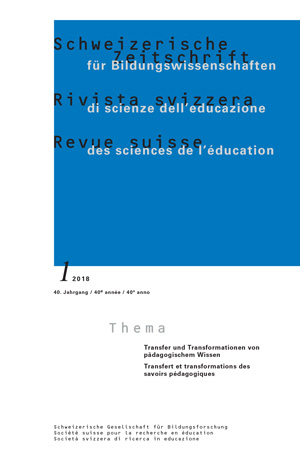Why become a teacher? Idealism, security or „I didn’t know anything else”?
A comparison between career choice motives of German and Swiss student teachers and the importance of country-related context conditions
DOI:
https://doi.org/10.24452/sjer.40.1.5060Keywords:
Teaching profession, career-choice motives, contextual conditions, employment conditions, typologyAbstract
The present study aims at comparing a variety of career choice motives of student teachers between Germany and Switzerland and two different school types, primary and secondary schools. By applying factor analysis, a factorial structure of career choice motives was developed, which was subsequently used as the basis for further comparisons by analyses of variance and the formation of homogeneous groups, using cluster analyses. Intrinsic motives, particularly the work with children and adolescents, are significantly more important than extrinsic motives. Results also revealed that students of the two countries differ in specific motives. These differences were further supported by the distribution of school types and countries across the extracted clusters. The results of the study point to the significance and demand to interpret insights into career choice motives not only at the individual level, but also in terms of specific contextual conditions.
Downloads
Downloads
Published
Issue
Section
License
Copyright (c) 2018 Manuela Keller-Schneider, Sabine Weiss, Ewald Kiel

This work is licensed under a Creative Commons Attribution 4.0 International License.



